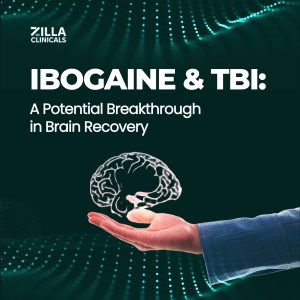
Traumatic Brain Injury (TBI) is a significant public health concern, often leading to long-term physical, cognitive, and emotional impairments. While medical science has made considerable strides in understanding and managing TBI, effective treatments for reversing its effects remain elusive.
Among the emerging therapies, Ibogaine, a naturally occurring alkaloid derived from the root bark of the African shrub Tabernanthe iboga, has garnered interest for its potential neuroprotective and neuroregenerative properties.
Researchers at Stanford University have been at the forefront of investigating Ibogaine’s potential for brain repair. Preclinical studies conducted by Stanford teams revealed that Ibogaine promotes significant neurogenesis and synaptic remodeling.
In 2024, their breakthrough work demonstrated that Ibogaine increases the expression of brain-derived neurotrophic factor (BDNF) and enhances dendritic spine density, which are critical for cognitive recovery and memory improvement.
Stanford researchers have also explored the compound’s effects on reducing neuroinflammation, showing that Ibogaine decreases the activity of pro-inflammatory cytokines, thereby creating a more conducive environment for healing.
Understanding Traumatic Brain Injury
TBI results from an external force to the head, causing brain dysfunction. Common causes include falls, vehicle accidents, sports injuries, and combat-related incidents. The injury can be classified as mild, moderate, or severe, depending on its impact on consciousness and neurological function.
The consequences of TBI are multifaceted includes brain swelling, inflammation, neuronal death, memory loss, impaired motor skills, and emotional dysregulation.
Mechanism of Action of Ibogaine
Ibogaine is a psychoactive compound traditionally used in spiritual and medicinal practices by indigenous peoples in Central and West Africa. Researchers have elucidated its mechanism of Action and have showed that it works in the following ways:
- Neuroplasticity and Neurogenesis
- Ibogaine stimulates the production of brain-derived neurotrophic factor (BDNF), a protein crucial for neuroplasticity and the growth of new neurons.
- Enhanced BDNF levels promote synaptic repair and the formation of new neural connections, potentially reversing TBI-induced damage.
- Anti-Inflammatory Effects
- TBI triggers a cascade of inflammatory responses that exacerbate neuronal damage. Ibogaine has been shown to reduce inflammation in the brain by modulating cytokine activity, which could mitigate secondary injuries.
- Glutamate Regulation
- Excess glutamate release following TBI leads to excitotoxicity, a condition that damages neurons. Ibogaine’s ability to regulate glutamate levels helps protect neurons from further harm.
- Enhanced Neuroprotection
- Ibogaine interacts with sigma-1 receptors and N-methyl-D-aspartate (NMDA) receptors in the brain, both of which play roles in cellular resilience and neuroprotection.
Clinical Evidence and Research
Animal studies and anecdotal evidence, supported by the Stanford Study of 2024 have reported improvements in focus, mood, and memory after Ibogaine therapy in veterans and athletes.
Potential Benefits of Ibogaine for TBI
- Holistic Recovery: Ibogaine’s effects extend beyond neuroregeneration to address emotional and psychological symptoms such as depression, anxiety, and PTSD, which are common in TBI patients.
- Non-Invasive Administration: Ibogaine is typically administered orally, making it less invasive compared to surgical or device-based interventions.
- Dual Role in Addiction Treatment: Many TBI patients also struggle with substance abuse, and Ibogaine’s anti-addictive properties could provide dual benefits.
The Path Forward
The potential of Ibogaine in treating TBI lies in its unique ability to address both the physical and psychological dimensions of the injury. Moving forward, the following steps are critical:
- Clinical Trials: Robust studies to evaluate safety, efficacy, and mechanisms in human subjects.
- Standardized Protocols: Development of dosing guidelines and safety protocols for medical use.
- Multidisciplinary Approaches: Combining Ibogaine therapy with traditional rehabilitation to maximize recovery.